Nation urged to build on eco-IP model
Industrial parks (IPs) involved in an initiative that aims to help push them into the realm of being classed as eco-parks have seen improvements across a string of indicators, according to a review event in Ho Chi Minh City last week.
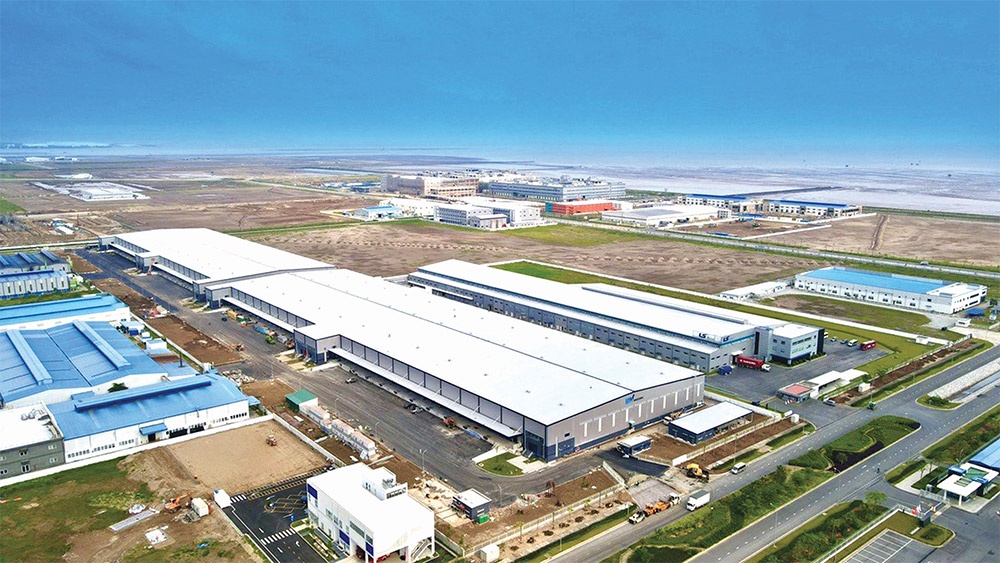 |
| Nation urged to build on eco-IP model |
For the 2020-2024 project, three IPs were selected for the transformation including Deep C Industrial Zones in the northern city of Haiphong, AMATA City Bien Hoa in the southern province of Dong Nai, and Hiep Phuoc IP in Ho Chi Minh City. Over the last four years, the level of compliance with the international framework on eco-IPs for all pilot complexes has increased in terms of environment, economy, and management.
DEEP C scored in 52 among 64 indicators, showing an 83 per cent of compliance level with the international framework on eco-IPs, up 36 per cent compared to the score in 2020.
AMATA scored on 54 indicators, equalling 86 per cent of compliance and 45 per cent higher than 2020; and Hiep Phuoc IP scored on 47 indicators, achieving a 76 per cent compliance rate, an increase of 32 per cent from 2020.
In January, the project also conducted a pilot assessment to demonstrate the national indicators set for Hoa Khanh IP in the central city of Danang. The trial results indicated that Hoa Khanh meets 68 per cent of Vietnam’s national eco-IP indicators.
The Eco-IP Intervention in Vietnam scheme has been funded by the Swiss State Secretariat for Economic Affairs and implemented by the United Nations Industrial Development Organization (UNIDO) in Vietnam and the Ministry of Planning and Investment (MPI).
It has a total budget of more than $1.8 million and was piloted from 2020 in the five localities of Ho Chi Minh City, Can Tho, Dong Nai, Danang, and Haiphong. Along with the selected IPs, technical support was also provided to Tra Noc 1 and 2 IPs as well as Hoa Khanh IP.
The project’s objectives were to demonstrate eco-IP solutions to improve the economic, environmental, and social efficiency of the industry and intergrade eco-IP development regulations into relevant policies.
The collaboration has led to substantial savings in energy, resources, and materials, and reduction of nearly 9,000 tonnes of CO2 per year.
Decades of development
Le Thanh Quan, general director of the Department of Economic Zones Management under the MPI, emphasised the project’s role in advocating eco-IP approaches, aligning with national strategies such as the National Green Growth Strategy for 2021-2030 and Vietnam’s commitment to the UN’s Sustainable Development Goals, the circular economy, and achieving net-zero emissions.
“As one of seven countries in the global eco-IP programme, the results of the project in Vietnam have been appreciated by sponsors, partners, and the participating business community, bringing active support for state management agencies, IP infrastructure enterprises, and businesses participating,” Quan said.
Vietnam currently has more than 420 IPs in 61 provinces and cities. According to Quan, a review of more than 30 years of construction and development of Vietnam’s IPs last year showed that they were a key attraction for domestic and foreign initiatives and the destination of many leading corporations, positively contributing to the industrial and socioeconomic development of the whole country.
“The world is changing rapidly and resources in terms of labour, land, natural resources, and preferential tax policies are gradually running out. Sustainable development, green growth, circular economy, and digital economy are becoming mainstream trends for countries to achieve the goal of green growth while ensuring social security, environmental, and ecosystem protection,” Quan said.
“In that context, the development of IPs and economic zones needs new models and appropriate policies such as the eco-IP model to improve land use efficiency, engage investment, and take advantage of Industry 4.0.”
There are 64 indicators in the international framework for the eco-IP initiative, including park management, and environment, social, and economic indicators.
In Vietnam, the project provided support such as capacity training, implementing greenhouse gases emission inventory, developing solid waste monitoring systems, and assessing resource-efficient and cleaner production. In addition, it supports the research, proposing, identifying, and implementing of industrial symbiotic solutions, and simultaneously supports financial assessment to implement opportunities.
An ongoing process
The project has collaborated with the MPI to demonstrate the national eco-IP indicator set, comprising 23 indicators to monitor the performance of eco-IPs in terms of the environment, management, and socioeconomic aspects.
Evaluating the performance of entrepreneurship indicators reveals that IP management is a strength of all the pilot IPs, while the environment represents a common challenge that needs improvement.
Despite the improvements, none of the pilot IPs fully meet the requirements for eco-IPs according to international frameworks. To achieve the goal of becoming eco-IPs, all pilot parks need to continue efforts to improve and comply with the indicators for eco-IPs in all areas.
Tran Quoc Trung, deputy general director of the Department of Economic Zones Management, said that efforts were ongoing to improve the legal basis for eco-IPs in Vietnam, develop documents to support the model, and raise awareness and understanding of about such facilities.
“Before implementing this key project, Vietnam had a series of legal documents, policies, and strategies in response to climate change, environmental protection, and sustainable development. Currently, the MPI is in the process of consulting on a draft circular guiding the 2022 regulations in which Vietnam’s set of 23 entrepreneurship indicators is tested. Of these, 12 indicators refer to the international eco-IP framework,” Trung said.
Le Thi Thanh Thao, country representative for UNIDO, appreciated the Vietnamese government’s commitment to eco-IP development and the longstanding collaboration with the MPI.
She highlighted the significant engagement from relevant ministries, participating IP authorities, developers, and tenant companies. “The substantial economic, environmental, and social benefits showcased from the project could inspire a wider adoption of entrepreneurship indicators for inclusive and sustainable industrial development in Vietnam,” Thao said.
Meanwhile, Sibylle Bachmann, head of Cooperation at the Embassy of Switzerland, stressed the crucial role of the project in enabling a sustainable and prosperous industrial development in Vietnam.
“With the support of the eco-IP programme, Vietnam has put in place relevant regulations and decrees on industrial solid waste management, wastewater reuse, and recycling,” Bachmann said.
 |
| Giang Ngoc Phuong, deputy managing director Hiep Phuoc Industrial Park JSC
Vietnam’s IPs cannot stand aside in going green. In the early period, our tenants were confused about the feasibility of this model. However, at present, many tenants are enjoying the benefits of it. Participating in the project, we have had opportunities to learn experience from other IPs in transforming into an eco-IP, especially the experience of developing industrial symbiotic models for our tenants. There are aspects of outstanding models that will not work for some tenants in an IP, and we have to build a particular model case by case. For example, in Hiep Phuoc IP, we have a model of sharing gas from the cooking oil factory with the flour factory. We cannot replicate the excess heat-sharing model for tenants in the IP. On the contrary, we can share this economic model with tenants in other IPs. To spread awareness of eco-IPs and the industrial symbiotic model, we are looking for more detailed and specific guidelines from the authorities. Many of these cooperation ideas have no precedent, causing barriers for manufacturers, even though they know that such cooperation will create many benefits in terms of saving energy and lowering carbon emissions. | |
| Nha-Vinh Julien Nguyen, country head WHA Vietnam
The direction of the eco-IP project has been good, as ultimately, quality developers are now moving towards smart eco-zones. We believe this is important in line with our sustainability goals as developer, and more importantly, to help our customers, the secondary investors, meet their own sustainability goals. The solutions presented here today have also been good, including better use of energy and resources, how to protect and minimise impact to the environment and surrounding communities, and leveraging on the use of new technologies. On that aspect, WHA Group is at the forefront in terms of innovation. Some of those solutions are already applied in our project in the central province of Nghe An and more will be implemented. In terms of areas for improvement, the more we can facilitate the use of renewable energy for customers, the better. This means facilitating the production and use of solar energy or other types of renewables, but also optimising the production and consumption of those renewables – for example, by allowing to trade such energy among the different users and producers as well as consumers within the industrial zone. |
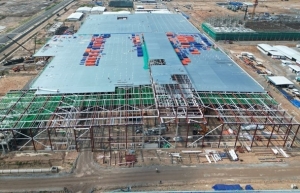 | IP developers hungry for financial bankroll Limited financial resources for industrial park technical infrastructure is preventing new investments and project expansions. |
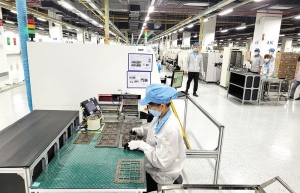 | Illustrating the critical need for top eco-industrial parks Vietnam is leaning towards international conventions when it comes to expanding its eco-industrial park strategy. Florian J. Beranek, lead expert of Responsible Business Development at the UN Industrial Development Organization, explains what this looks like, and how developers can be encouraged to go greener. |
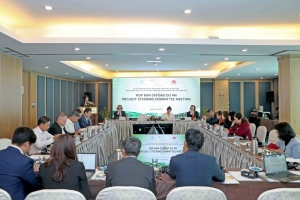 | Vietnam to promote eco-industrial parks with international partners The Steering Committee on the Development of Eco-industrial Parks in Vietnam, organised a meeting yesterday to discuss last year's results and set a course for the following two years of the scheme. |
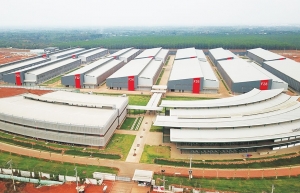 | Private sector urged to enter eco-IP arena Authorities have been urged to foster participation of the private sector to speed up the creation of eco-industrial parks, contributing to the government's green growth strategy. |
What the stars mean:
★ Poor ★ ★ Promising ★★★ Good ★★★★ Very good ★★★★★ Exceptional
Related Contents
Latest News
More News
- An Phat 5 Industrial Park targets ESG-driven investors in Hai Phong (January 26, 2026 | 08:30)
- Decree opens incentives for green urban development (January 24, 2026 | 11:18)
- Public investment is reshaping real estate’s role in Vietnam (January 21, 2026 | 10:04)
- Ho Chi Minh City seeks investor to revive Binh Quoi–Thanh Da project (January 19, 2026 | 11:58)
- Sun Group launches construction of Rach Chiec sports complex (January 16, 2026 | 16:17)
- CEO Group breaks ground on first industrial park in Haiphong Free Trade Zone (January 15, 2026 | 15:47)
- BRIGHTPARK Entertainment Complex opens in Ninh Binh (January 12, 2026 | 14:27)
- Ho Chi Minh City's industrial parks top $5.3 billion investment in 2025 (January 06, 2026 | 08:38)
- Why Vietnam must build a global strategy for its construction industry (December 31, 2025 | 18:57)
- Housing operations must be effective (December 29, 2025 | 10:00)

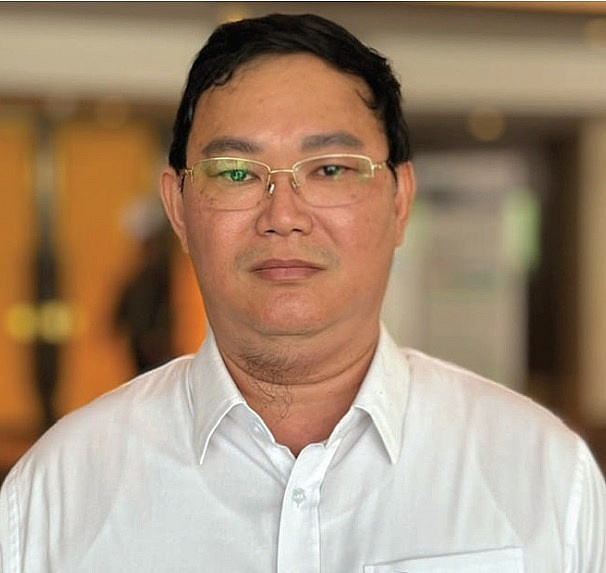

 Tag:
Tag:


















 Mobile Version
Mobile Version